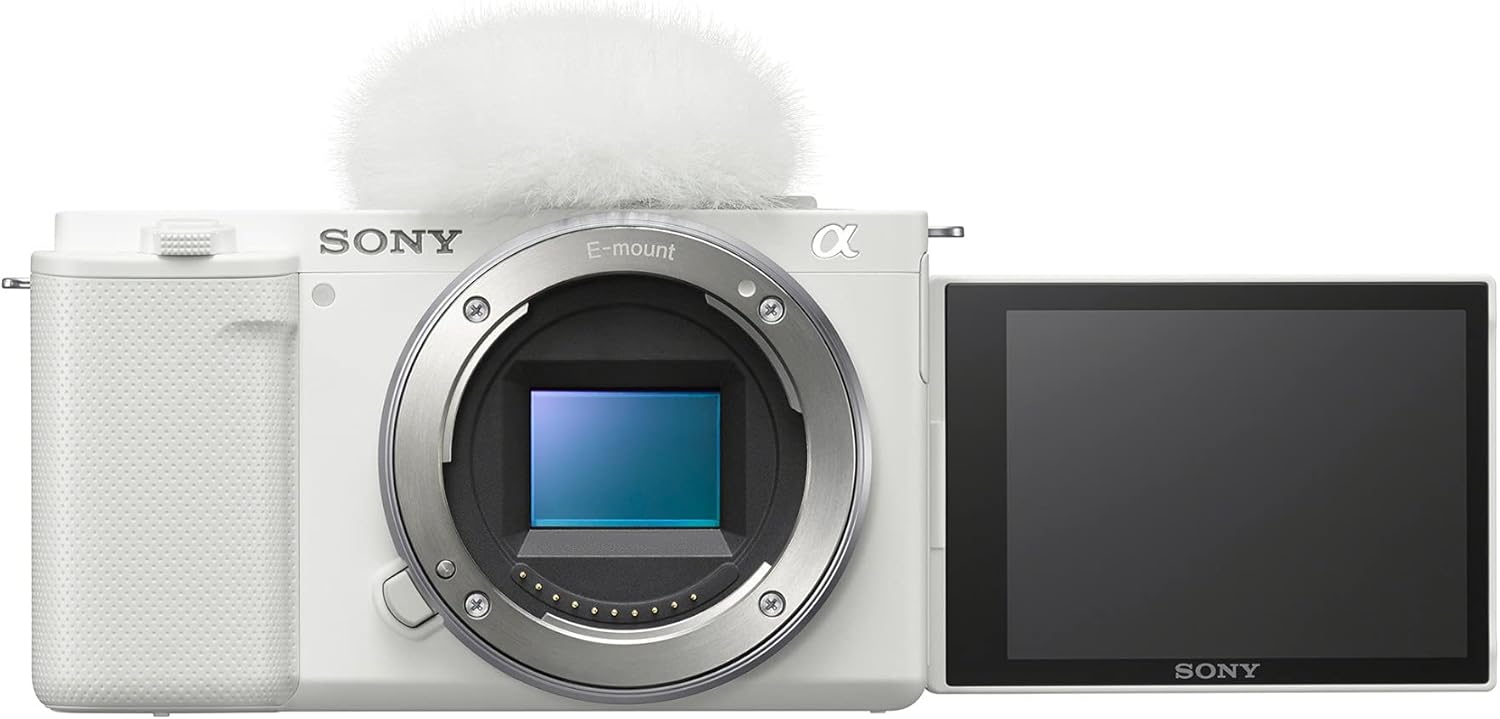








Price: $698.00
(as of Apr 07, 2025 03:32:01 UTC - Details)
What is the Best Starter DSLR Camera? A Comprehensive Guide
Introduction
Are you looking to dive into the world of photography? Choosing the right camera can be a daunting task, especially for beginners. In this guide, we will explore the best starter DSLR camera options available today. Whether you're capturing everyday moments or exploring your artistic side, having the right gear can make all the difference. We'll cover essential features, budget options, and tips to help you make an informed decision. So, let’s embark on this photographic journey together!
Understanding DSLR Cameras
What is a DSLR Camera?
A Digital Single-Lens Reflex (DSLR) camera is a popular choice among photography enthusiasts and professionals alike. It combines the optics of a single-lens reflex camera with a digital imaging sensor. This technology allows for better image quality, faster focusing, and greater versatility compared to point-and-shoot cameras.
Why Choose a DSLR Over Other Cameras?
When considering your first camera, you might wonder why a DSLR is the best choice. DSLR cameras offer interchangeable lenses, which means you can adapt your camera to different situations, whether it's capturing wide landscapes or close-up portraits. They also tend to perform better in low light, giving you more creative freedom.
Key Features to Look For
Sensor Size Matters
When selecting a starter DSLR, one key aspect to consider is the sensor size. Larger sensors generally capture more light, resulting in better-quality images. For beginners, APS-C sensors are a great balance between size, performance, and price. Cameras like the Canon EOS Rebel series or Nikon D3500 offer APS-C sensors that deliver fantastic results.
Megapixels: More Isn't Always Better
While it’s easy to get caught up in the megapixel race, remember that more megapixels don’t always equate to better images. For most beginners, a camera with 18 to 24 megapixels will suffice. This resolution is more than enough for printing and sharing your photos online. Focus on other features like image quality and low-light performance instead.
Autofocus Systems: Speed and Accuracy
A good autofocus system is crucial for capturing sharp images, especially if you're shooting moving subjects. Look for cameras with multiple autofocus points and fast focusing speeds. The Canon EOS 90D and Nikon D5600 are known for their reliable autofocus systems, making them excellent choices for new photographers.
Budget-Friendly Options
Best Entry-Level DSLRs
If you're starting your photography journey, you don't need to break the bank. There are several budget-friendly options that provide great value. The Canon EOS Rebel T7 and Nikon D3500 are both excellent starter DSLRs that offer user-friendly controls and great image quality without a hefty price tag.
Buying Used or Refurbished Cameras
Another way to save money is by considering used or refurbished cameras. Many reputable retailers offer certified pre-owned models that work just as well as new ones. This allows you to get a high-quality DSLR at a fraction of the price, making it an attractive option for beginners.
Lenses: What You Need to Know
Kit Lenses vs. Upgrading
Most starter DSLRs come with a kit lens, which is a versatile option for general photography. However, as you grow as a photographer, you may want to explore other lenses. Prime lenses, such as a 50mm f/1.8, are great for portraits, while wide-angle lenses are perfect for landscapes. Understanding your photography style will help you choose the right lenses down the line.
Importance of Lens Compatibility
When selecting a DSLR, consider the availability of compatible lenses. Both Canon and Nikon have extensive lens ranges, so you won't run out of options as you develop your skills. Researching third-party lenses can also provide you with additional choices at various price points.
Accessories to Enhance Your Experience
Essential Accessories for Beginners
As you begin your photography journey, having the right accessories can enhance your experience. A sturdy tripod is essential for low-light shots and landscapes, while an extra battery will ensure you don’t miss out on capturing special moments. Don’t forget a camera bag to protect your gear and keep everything organized.
Memory Cards and Storage Solutions
Choosing the right memory card is equally important. Look for a card with a high write speed, especially if you plan to shoot in RAW format. This will ensure your camera can save images quickly without lagging. Additionally, investing in an external hard drive for backups is a smart way to keep your photos safe.
Learning and Growing as a Photographer
Online Resources and Communities
As a beginner, it's vital to continue learning and improving your skills. There are numerous online resources, including photography forums, YouTube channels, and websites dedicated to helping you master your DSLR. Joining a photography community can also provide valuable feedback and support as you progress.
Practice Makes Perfect
The best way to improve your photography skills is through practice. Experiment with different settings, lighting conditions, and subjects. Don’t be afraid to make mistakes; they are part of the learning process. The more you shoot, the better you’ll understand your camera and develop your unique style.
Conclusion
In conclusion, finding the best starter DSLR camera involves understanding your needs, budget, and the features that matter most. With the right camera, accessories, and a willingness to learn, you can embark on an exciting photographic journey. Remember, the goal is to enjoy the process and capture the moments that matter to you. Happy shooting!
Large 24.2MP APS-C Exmor CMOS Sensor and fast BIONZ X processor
4K Movie oversampled from 6k w/ full pixel readout, no pixel binning
Product Showcase Setting transitions focus from face to object
Background Defocus button instantly toggles between defocus effect on/off
Easy live streaming w/ single USB cable and no extra hardware/software
